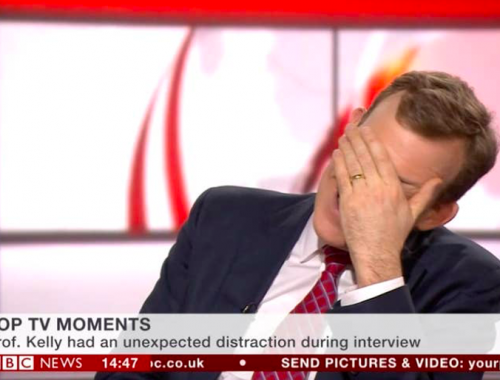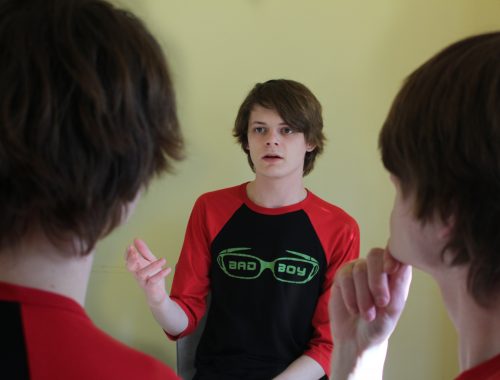Overcoming barriers to interview success
This Blog will touch on the experiences of the simulated interview and offer an in depth perspective on accessibility barriers to success. I will be using the Gibbs reflective cycle to examine and reflect on my experience, my thoughts and feelings and a consideration of what I could have done differently.

The experience (Description)
Essentially, the process of the interview was quite simple. It was well planned out for us, and we knew what we had to do to prepare. During class we voted as to what kind of groups we would like to be a part of, and so my group was made up of people doing interviews for a wide range of placements. We then had to go away as a group and find which job description we would choose for our simulated interview, and subsequently make up questions to ask each other. On the day, we were sat in a room with our perspective groups and took it in turns to interview each person. We had a couple of minutes to choose questions and then about 5 minutes I believe to conduct the interview. We also filled out feedback forms as part of this process, which is of course a vital part to any job interview.
How was I feeling?
In terms of my feelings during this experience, I was anxious. I ended up however also feeling quite motivated, hearing a lot of passion from my group members and I actually was quite touched by some of the personal anecdote’s used to show this passion.
How did it actually go? (Evaluation)
I believe that the interview went well. The people in my group were very supportive and encouraging towards each other which enabled us to create a safe space to comfortably answer our questions.
What barriers I faced (Analysis)
The other things I can deduce from this experience are that there are often a number of unique barriers that we face when in situations such as these. A lot of people will find interview settings to be nerve wrecking and having anxiety and autism I was no stranger to such feelings. I wanted to write a bit about this in this blog because I feel like I can offer a unique perspective on it in terms of the simulated interview. Upon reflecting on the feedback, I got for the interview, the vast majority of it was positive. The main points of ‘criticism’ as such were more so to do with my presentation, things like lack of eye contact, or hesitation in my speech.
Often when we reflect on feedback from job interviews, we put a lot of onuses on the criticisms and what we can do better. But I wanted to use this space in my blog to perhaps challenge such ways of thinking. If I were to put too much pressure on this feedback about eye contact, I might have feelings such as frustration towards me being autistic, something about myself that can’t be changed. However, when I think of it in a reflective manner, I am able to recognise that most reputable companies will have support measures in place for disabled candidates when they are carrying out interviews. This is not to say that I didn’t feel I had enough support in the simulated interview, it’s more so that the experience of this interview has allowed me to take on this feedback and know that this aspect of interviews is something that I will need additional support from employers on, and that’s nothing to be ashamed of. Goepel, writes on this idea of making reasonable adjustments, “The Equality Duty (2010) requires that where a disabled person is placed at a substantial disadvantage relative to a non-disabled person, reasonable adjustments should be made”.
There are a lot of people in the career and wider world that will preach things like “it’s differently abled, not disabled”. I like to whenever I can, challenge such notions. I like to believe that adding personal touches to my writing is something that would also have helped me with the role I was applying for. Green asserts that” Writing is a mirror of the self, the soul and the world.”, so in this sense I think it can be important to relate your personal experiences to wider issues. Disabled is not a bad word, and it shouldn’t be treated as such. The reality is that a lot of the career world and wider society is simply not accessible. The experience of the simulated interview enabled me to further reflect on what barriers to success that I currently face in terms of interview, but it also helped to give me a good perspective. Taking on feedback from job interviews should not just be centred around criticisms, it should also be an opportunity to celebrate how far you came to get there in the first place. Barton’s writing sums up this idea of being confident in yourself, “The ability and confidence to be self-sufficient goes a long way to helping you stand out from the pack.”
What else could I have done?
In terms of what else I could have done; I think that especially if this were in a real setting, I would need to do more research on the company itself. I always like to be well versed in the company ethics and values, and that’s something I didn’t focus on enough in this task. Hecq writes on this, “I suggest that creative success is the result not of luck, but of preparedness”
What would I do differently? (Action Plan)
Finally, what I would do differently is to believe in myself more. I think we can agree that it’s easy to doubt ourselves in these kinds of situations, and it’s not so easy to be kind to ourselves. Overall, I had a positive experience completing the simulated interviews, and I know that would have been more so enjoyed had I believed more in my own ability.
Bibliography
- Gem Barton. 2016. Don’t Get a Job…Make a Job. London: Laurence King Publishing
- The Creativity Market : Creative Writing in the 21st Century, edited by Dr. Dominique Hecq, Channel View Publications, 2012.
- Green, Andrew. Becoming a Reflective English Teacher, McGraw-Hill Education, 2011
- Goepel, Janet, et al. Inclusive Primary Teaching : A critical approach to equality and special educational needs and disability, Critical Publishing
Reach for the STAR
Grief and placement
You May Also Like

When the BBC thinks you live in the Atlantic – My Simulated Interview
17 February 2022
Shocker, Tom also sucks at interviews!
18 February 2022
